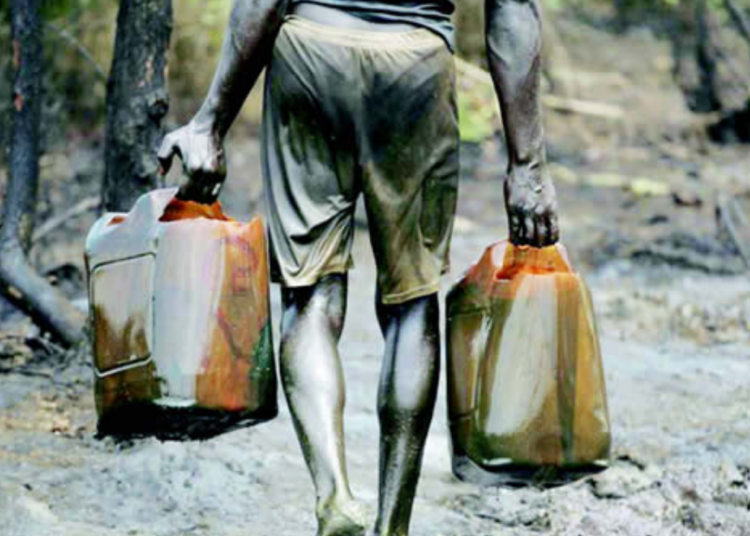The federal governments’ Special Investigative Panel on oil theft and losses has called for deliberate conversations to drive legal reforms that would provide stiffer penalties to culpable entities involved in oil theft.
Chairman of the panel and interim administrator of the Presidential Amnesty Programme (PAP) Maj. Gen. Barry Ndiomu (rtd) while speaking at a stakeholders conference on oil theft/losses in Abuja, said serious discussions must be held to enable the country crack the code and put an end to the criminal enterprise of oil theft.
The chairman regretted that the menace of oil theft has had enormous negative impact on Nigeria’s crude oil production, plunging output to a 13-year low of 800,000bpd, reiterating that strategic consultations have been held with state governments of the Niger Delta region and other critical stakeholders to that effect.
Ndiomu further advocated for application of modern technologies to protect oil assets, and a review of security architecture in the region with a view to stem the “sophisticated network of complicity between elements from the host communities, security agencies and industry players”.
“Many will recall that owing to protracted cases of oil theft and a steady decline in revenue accruable from petroleum product sales, the federal government had awarded pipeline surveillance contracts to some private security companies including Tantita Security Services Nigeria Limited.
“This strategy eventually led to the widely publicized discovery of an illegal connection used in the diversion of crude oil along the Trans-Escravos Trunk Line. Consequently, the Federal Government immediately swung into action by employing practicable measures to address the situation and on the instruction of Mr. President the National Security Adviser (NSA) constituted and inaugurated the Special Investigative Panel on Oil Theft and Losses in Nigeria on 6th December 2022 under my humble chairmanship.
“This conference marks a climax to months of field visits to locations and facilities on and offshore, extensive engagement across government and non-government stakeholders as well as in-house deliberations aimed at unpacking and unravelling what has become the country’s most troubling economic debacle.
“There is no gainsaying the enormous impact the menace has had on the nation’s crude oil production with our oil output hitting a 13-year low of 800,000barrels/day. The panel visited several sites across the Niger Delta such as the now infamous Yokiri Flow Station Area in Burutu Delta State where the illicit connection on the export line that fed off the TETL was discovered and saw other connecting points used for illegal refining.
“In Owerri, Imo State, a visit to the Walter Smith Modular Refinery revealed the supply challenges the company faced with massive drop in product volumes when pumped through the export line. Several offshore platforms including the FPSO’s Agbami and Bonga were also visited.
“We conferred with members of the Oil Producers Trade Section (OPTS), the different oil and gas regulatory bodies as well as other industry stakeholders who gave varying insights into the issues surrounding this phenomenon. Strategic consultations were held with the Governors to get their special insight into experiences in dealing with the many issues around oil theft,” he said.











